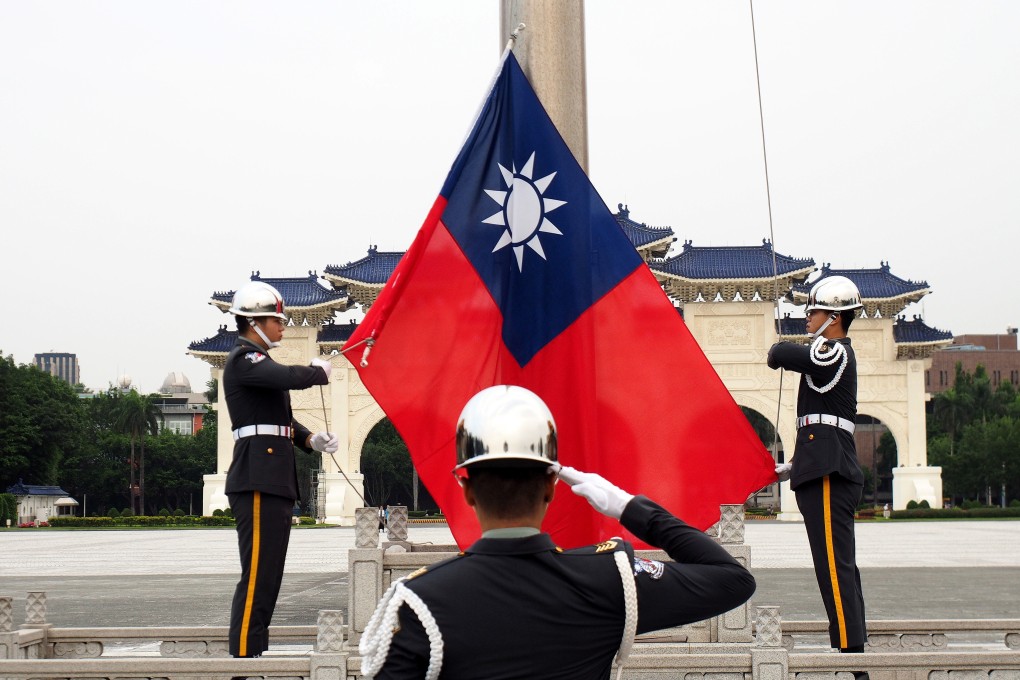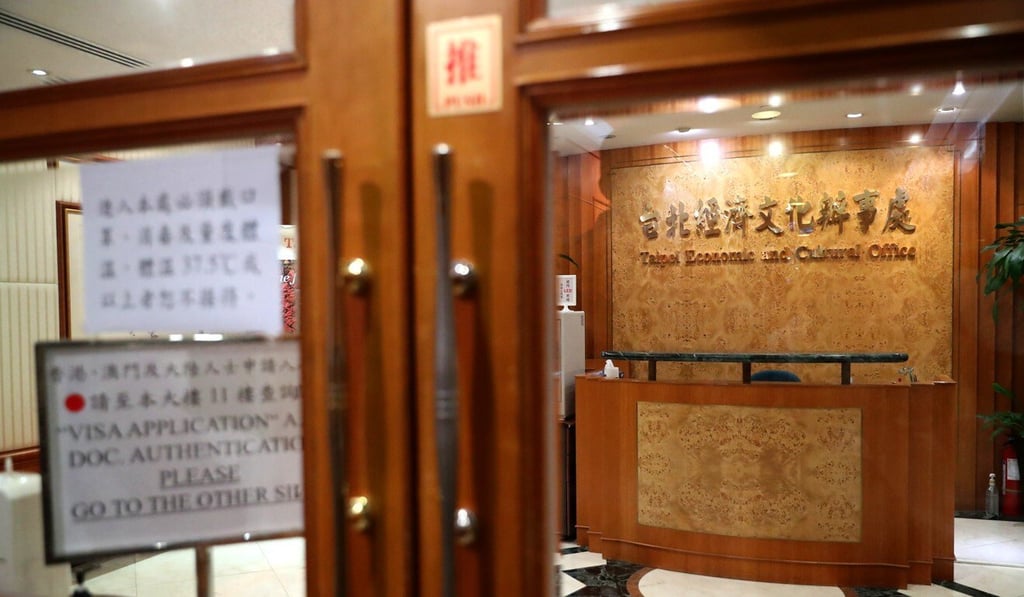Head of Taiwan’s Hong Kong office, two colleagues forced to leave after refusing to sign document supporting ‘one-China’ principle
- It is understood the Taipei Economic and Cultural Office plans to continue operating in the city, though it is now left with only one director-level staffer
- Earlier this month, Beijing’s Taiwan Affairs Office warned Taipei against ’messing up’ Hong Kong, and described its ruling party as a ‘black hand’

The head of Taiwan’s office in Hong Kong was forced to leave the city this week alongside two directors after they refused to sign a declaration requiring them to “rigorously uphold the one-China principle” as a condition of visa renewal, the Post has learned.
Kao Ming-tsun, acting director general of the Taipei Economic and Cultural Office (TECO), departed on Thursday, a day after two other directors – one in charge of administration and the other overseeing services at the office – also left, according to a source familiar with the matter.
The declaration issued by the city government required the three to agree that Taiwan and the mainland comprise “one China”, the foundational element of the “1992 consensus”, something Taiwan President Tsai Ing-wen has refused to acknowledge.

“While in Hong Kong, [you should] rigorously abide by the one-China principle and Hong Kong’s Basic Law, as well as the rule of law in Hong Kong,” the declaration reads.
The trio were told they would either have to sign or be unable to renew their visas, something they refused to do while awaiting the results of their applications, according to the source. They ultimately left Hong Kong as their visas had expired.